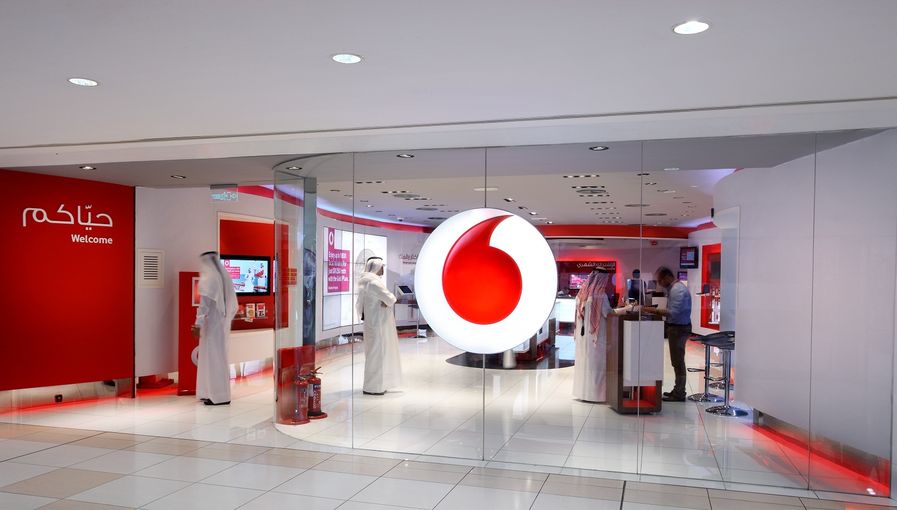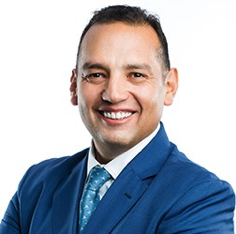VODAFONE – 5G IN OUR CHANGING WORLD

VODAFONE – 5G IN OUR CHANGING WORLD
Vodafone is having to adapt to life after COVID-19 and that means changes need to be in place to ensure that they can react to customer demands in an ever changing business and social environment.
Diego Camberos, Chief Operating Officer at Vodafone Qatar, explains how the impact of COVID-19 will change the digital space in the near future.

The world was becoming more digital before COVID-19, but the pace of change is even faster now. With businesses massively disrupted and people staying homme; operating models have had to change very quickly, and COVID-19 has accelerated this digitisation.
Many sectors and industries may never look the same again. Business and leisure travel will remain sluggish and we will be interacting over digital mediums more often. More organizations will adopt remote working as “business as usual”. The adoption of technology in education will accelerate. Consumers will look for entertainment options at home while retailers will accelerate the shift to digital as they shutter stores.
The key point to note is that once this crisis is over; things will not just return to the way they were. Many of these new behaviours and customer preferences for digital channels and staying home will continue to persist beyond the pandemic. This will become the new “normal”.
Is 5G technology still relevant? The answer lies in understanding what 5G is and the benefits it brings over other technologies.
Vodafone Qatar joined thought leaders from the region at 5G MENA 2020, held virtually this year, and we shared our vision for how 5G technology will make a difference amidst this new “normal”.
In short, 5G’s faster speeds open opportunities in enhanced mobile broadband and fixed wireless access (FWA), supporting work and play from the cloud, ultra-high-definition videos, augmented and virtual reality etc. Lower latency and reliability support use cases like smart cities, smart agriculture and others, while its scalability supports a massive number of connected Internet of Things (IoT) devices.
Vodafone Qatar commercially launched 5G around a year ago, and it’s been very interesting times. We’ve now shifted to considering the most promising use cases for monetizing our investments and creating value for our customers, and for our market three immediate opportunities leap out.
The first is leveraging 5G for fixed wireless substitution. Since COVID-19, the customer need for home broadband for faster, more reliable and economical connectivity has been amplified. But the challenge is a lack of fibre footprint in some areas and a setup time requiring a technician’s visit.
On the other hand, a 5G FWA/MiFi can be easily installed by the customer themselves, and where 5G is more economical to connect; the benefit can be passed on to customers. In Qatar, we are noticing ood adoption of 5G home broadband.
The second is gaming and entertainment needs, which have accelerated since COVID-19. During the first week of global lockdown in mid-March, the popular game Fortnite was downloaded 2.8 million times – a 2,000% increase over normal volumes.
From a technology perspective, the shift to cloud-based gaming is gaining traction. Everything is streamed from remote servers to the user’s interface, which could be anything from a mobile phone to a television. Google Stadia (another cloud gaming service) has likewise seen a spike in usage.
Going forward, we will continue seeing a shift from large venues, movie theatres and outdoor entertainment options to indoor and individual entertainment. 5G offers the high bandwidths and low latency required for cloud gaming and service providers can monetize this opportunity by offering unlimited gaming packages with an assured low latency, for use both inside and outside the home.
Thirdly, social distancing norms have accelerated the need for connected machines and devices. In the manufacturing and logistics industry, maintaining a safe social distance is difficult with a lot of movement in closed spaces. Cost optimization and automation become even more important for managing the impact of “future outbreaks”. The key benefit of 5G is low latency and being able to connect a massive number of devices for smooth functioning.
Looking ahead toward a slightly longer horizon, the 5G use cases that Vodafone Qatar predicted would gain traction in 2022 and beyond now seem to have accelerated, with earlier widespread adoption. Use cases such as remote medical assistance, smart stadiums and smart cities have been piloted with reasonable technical success in Qatar and across the world. The majority of future 5G use cases will be enterprise-focused rather than consumer-focused.
Vodafone Qatar is preparing for this new “normal”. As a telecommunication service provider, we see it as important to maintain the budget for long-term strategic investments; narrow the focus on 5G use cases that customers are seeking in the near term and build relevant products and services around these needs.
We may not know what the new “normal” will look like, but organisations that are prepared to accelerate innovation once the crisis is over are the ones that will outperform.

